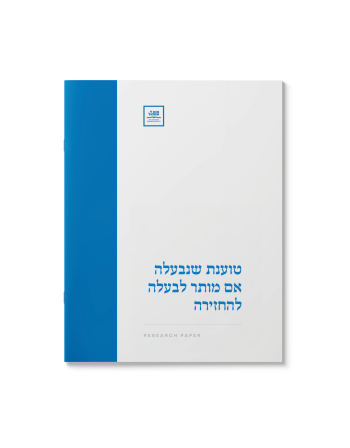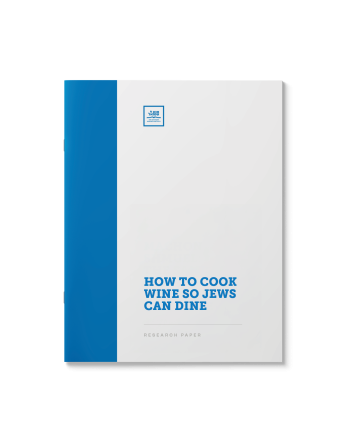Rinse and Repeat
$75.00
Why must we wash our hands each morning when we awake? A fascinating review of the different rationales behind the morning netilas yadayim, as well as a comprehensive breakdown of the practical laws of this daily practice.
| Language | English |
|---|---|
| Paper Type | Research Paper |
| Pages | 40 |
Related Products
Jewish law regulates the consumption of food cooked by a Gentile. Is microwaving considered cooking for this purpose? This paper
illustrates how the ancient kashrut laws apply to modern technologies.
Does making tztitis at night make them invalid? What was the
position of the Rebbeim in this regard?
For some, only a serious serving of Cappucino or Esspresso can pack in a much needed energy boost for the day.
With 11,962 Starbucks locations throughout the United States, the prospect of buying coffee from your local coffee shop raises some important halachic questions.
Part I:
Does a coffee prepared by a non-Jewish barista involve an issue of Bishul Aku”m? May one drink inside the coffee shop, or only to-go? What was the Arizal’s unique take on the subject? Also: what is the proper Bracha on coffee beans?
(Hebrew)
This paper is a sequel to Tefillin 101 and provides an expanded view of the halachic and esoteric dimensions of the mitzvah of Tefillin.
Food makes the world go around. But for the Jewish consumer there’s a whole other angle to consider: is the food Kosher?
To the discerning Jewish palate, the question also relates to the rationale behind the mitzva. Are there material or spiritual benefits to be had from its fulfillment or must it be carried out only because G-d has so ordained it?
It has saved many a Shabbos meal and avoided much embarrassment. But how exactly does yayin mevushal address the problem of yayin nesech? What is the technical definition of mevushal? A behind-the-scenes look at kosher wine production and its laws.
This paper features a compendium of sources for the
instruction of foundational aspects of the mitzvah of Tefillin.
In addition to the Prohoibition against Gambling, observant Jews seem to have an aversion to the standard deck of playing cards.
What could be wrong with an innocent game of Solitaire?
כבוד ההורים היא מצוה גדולה וחשובה עד מאד. אך ממבט ההלכה, מהי הגדרת המצוה והמגבלות שלה? מהו נכלל בכבוד או במורא? למען יאריכון ימיך.
שאלה נפוצה בדיני טבילת כלים היא לענין מכונת הקפה הביתית. האם אמנם חייבים אנו לטבול אותה? בעזרת טכנאי, המאמר שלפנינו מפרק את חלקי המכונה, ומציע מסקנה הלכתית מעשית.
“Do not cook a kid in its mother’s milk.”
Traditional Kosher cooking avoids all forms of meat and milk combinations, including poultry.
What is the origin of this prohibition and when did it begin?
עם הנבחר מתייחד בתכונותיו של רחמנות וגמילות חסד. אלא שלפעמים מתווצר גם מצב הנותן משום לשאלה: האם אפשר לכוף את העשיר לנדב מהונו לצדקה? או שמא אינו תלוי אלא בנדיבות לב של כל אחד ואחד? על מצות הצדקה ותנאיה.








![The Kosher Diet - Healthy in Body and Soul [New!]](https://catalog.myjli.com/wp-content/uploads/2025/05/SAMSTKD-350x448.png)






